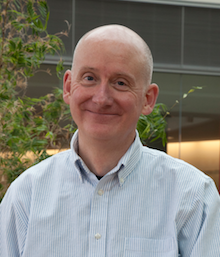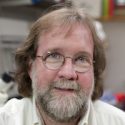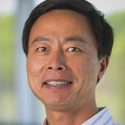UW stem cell pioneer Thomson earns innovation award
A prestigious scientific honor adds to the legacy of stem cell pioneer James Thomson.

James Thomson
Thomson, who first derived human embryonic stem cells in 1998 and reprogrammed human skin cells into induced pluripotent stem cells in 2007, has earned the McEwen Award for Innovation from the International Society for Stem Cell Research (ISSCR). He is being honored for his work in isolating human pluripotent stem cells, which revealed new possibilities for basic biology, drug discovery and cell-based therapies.
“It’s an honor to be recognized with the McEwen Award and I’m pleased that my work-and the work of many key collaborators in this field has created new avenues for understanding and addressing challenges in human health,” said Thomson.
Thomson is director of regenerative biology at the Morgridge Institute for Research and the James Kress professor of embryonic stem cell biology at the University of Wisconsin–Madison. He also is a John D. MacArthur professor at UW–Madison’s School of Medicine and Public Health and a professor in the department of molecular, cellular and developmental biology at the University of California, Santa Barbara.
Thomson’s regenerative biology lab at the Morgridge Institute for Research focuses on how cells maintain or change identity as well as how differentiated cells can be returned to a pluripotent state. With a strong commitment to the field of bioinformatics — the use of computational technology to analyze reams of biological data — Thomson’s team is examining the exceptional cancer resistance and regenerative capabilities of salamanders known as axolotls.
The McEwen Award recognizes Thomson’s career history of influential discoveries as well as groundbreaking work within the past 10 years. The ISSCR’s award, supported by the McEwen Centre for Regenerative Medicine in Toronto, Ontario, Canada, will be presented to Thomson at the ISSCR’s 11th Annual Meeting in Boston in June.
Nancy Witty, CEO and executive director of ISSCR, praised Thomson’s scientific leadership.
“We are delighted to recognize Dr. Thomson’s seminal contributions to the field,” Witty said. “We applaud not only his pioneering research in human pluripotent stem cells that won the McEwen Award, but also his commitment to training and resource development that has contributed enormously to the ongoing advancement of the field.”
Beyond his academic research achievements, Thomson also is founder and chief scientific officer of Cellular Dynamics, a company based in Madison, Wis., that produces lines of induced pluripotent stem cells and their derivatives such as heart, liver and nerve cells for use by scientists in academia and industry.



